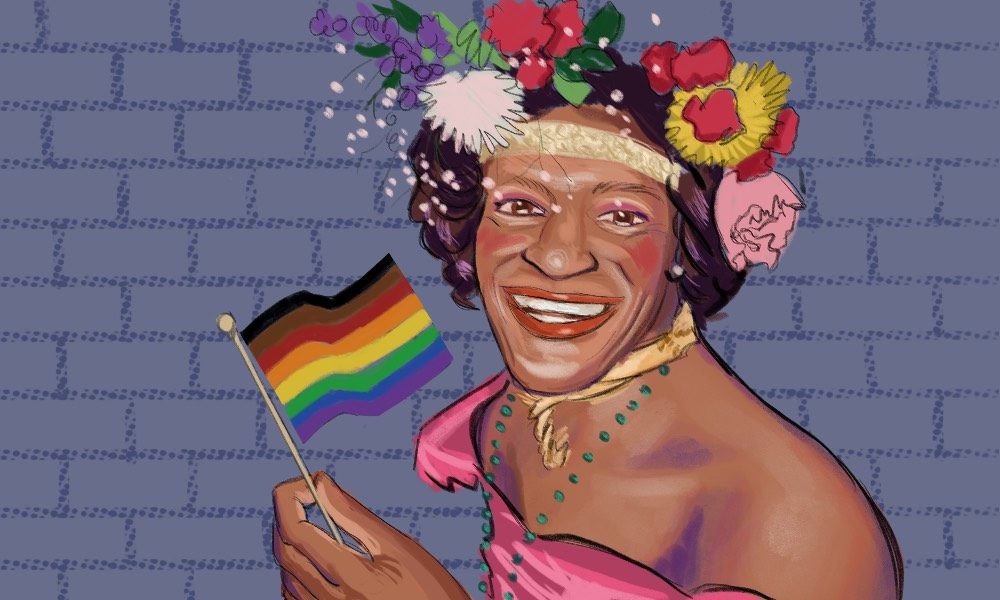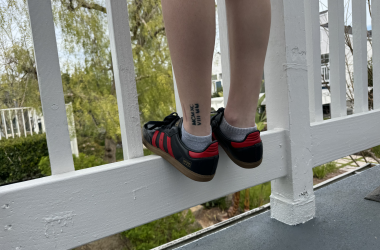A little over a half century ago, a police raid of a gay club in New York City’s Greenwich Village, the Stonewall Inn, catalyzed a worldwide movement for gay pride.
Raids during the 1960s were common at LGBTQ bars, and, in some cases, the police would tip off the owners so they could hide any illegal activity, including stashing alcohol they had without a liquor license.
But on the morning of June 28, 1969, no one was tipped off about the raid. The police ambushed the bar, beat people, took their money and threw them out onto the street. As the bar-goers began to gather outside the club, instead of dispersing, they united.
The early morning at Stonewall was significant because, instead of dispersing at the police’s orders, they stood up against their oppressor. There was no planning or organizing; it was a movement created in the spur of the moment.
As club-goers watched police load vans with people from the bar, one lesbian was hit over the head by an officer forcing her into the vehicle. She called to the bystanders to act, and they began to throw bottles and debris at the officers. The police had to barricade themselves inside the bar, while around 400 people rioted. Protests outside of Stonewall continued for the next six days and inspired protests around the country and world.
Part of the power of Stonewall was the spontaneity of the riot. It was not a scheduled protest, but an honest and emotional response to the frustration of oppression and brutality being faced at the hands of police and in that moment they realized they had the powerIt was one of the first times that gays, lesbians and trans people came together to fight for their civil rights, and inspired that unity to carry on for the decades that followed.
Though in America we’ve progressed as a society in our views and treatment of LGBTQ people since the 1960s, it’s still important to remember our not-so-distant history and how it still affects people today.
It’s important to remember that sixty years ago, gay people couldn’t even hold hands without harassment and wearing clothes outside of one’s assigned gender was considered criminal activity. You could be jailed for just being with someone you love.
On the morning of the Stonewall raid, 13 employees and bar-goers were arrested for violating the state’s gender-appropriate clothing statute.
Because anything associated with being gay or queer was criminalized, many gay clubs were owned by people affiliated with crime. Many of Greenwich Village’s gay bars at the time were run by a Genovese crime family, who had bought the Stonewall Inn when it served as a “hetero” bar.
They renovated it and a year later opened the Stonewall Inn as a gay club.
The Stonewall Inn was popular in the LGBTQ scene for a multitude of reasons: the entry fee was cheap, they were welcoming to drag queens and housed runaways and gay youth.
The outside world was unwelcoming to LGBTQ folks, so these bars were one of the few places they could go to be themselves without fear of harassment. Gay clubs served as a safe haven, a place of unity and connection for those deemed as outsiders.
Prior to Stonewall there were gay rights organizations, such as the Mattachine Society, who staged a “sip-in” where they would announce their sexuality at a bar and sue if they were turned down service. Stonewall paved the way for more radical organizations to thrive, like the Gay Liberation Front and the Gay Activists Alliance.
As demands for gay rights became broadcasted louder than ever before, new nondiscriminatory policies were passed. Twenty-two states, including Illinois and Connecticut, repealed their anti-sodomy laws in the 1970s. Also, 10 states and over 80 cities revised their civil rights laws, including executive orders that discriminated against persons based on sexual orientation in aspects such as employment. Legal changes to gender were allowed on birth certificates and driver’s licenses in 20 states by the 1990s.
We’ve come a long way since then. In 2015, the Supreme Court legalized gay marriage in all 50 states, and much of society has shifted to have a more embraceful approach to LGBTQ issues.
Though we are able to express our identities more openly now, and love who we want to love, history is not entirely in the past. There are still many inequities and injustices the LGBTQ community faces.
We owe our progress and possibilities to the people of the past, who decided to stand up instead of sit back when met with the oppressor.
Stonewall’s legacy reflects the power the people hold. All these disenfranchised groups came together to demand respect and their natural born rights. Though these individual groups had been ignored and ostracized, when they came together their voices were impossible to ignore.
People were in the streets screaming they were gay, and they were proud, a tradition that will live on forever.




